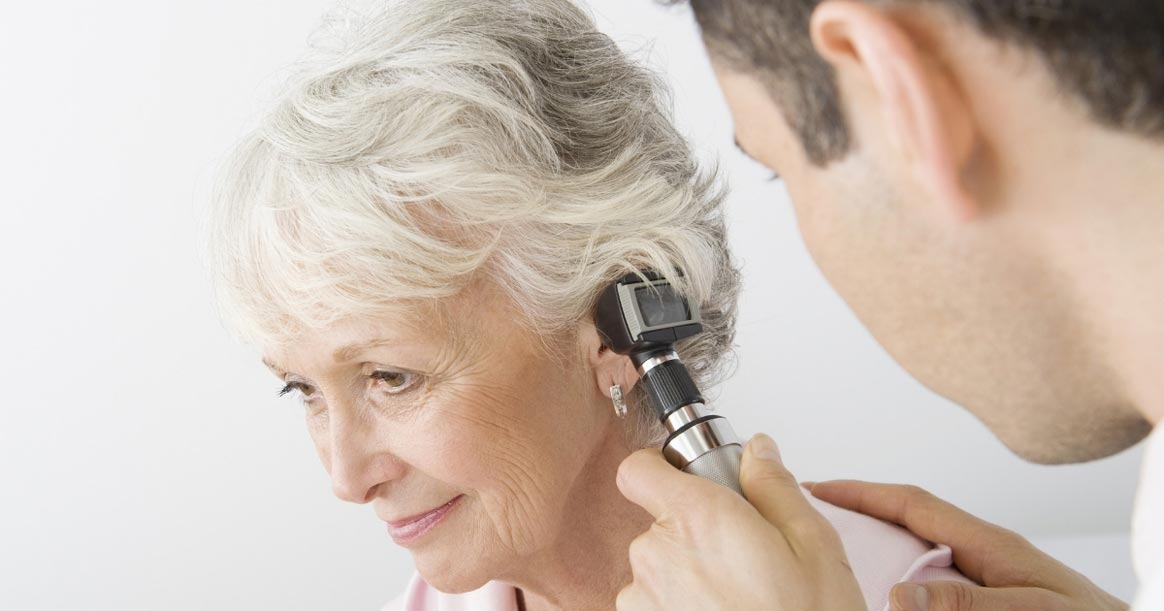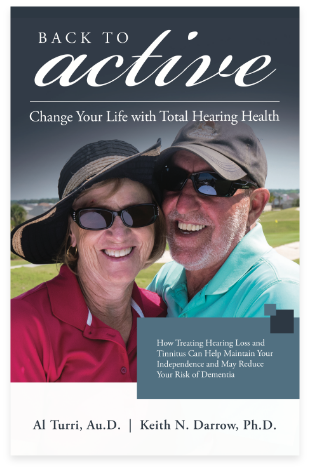Gifts are available on a first come, first serve basis. One gift per household.

What Are the Symptoms and Causes of Hearing Loss?
Hearing is integral to quality of life and can drastically impact your emotional, mental, cognitive and overall health. Hearing loss is a very real concern for most aging adults, and while the degradation of this sense is often considered a common part of aging, hearing loss isn’t something to be dismissed as a fact of life.
According to the Hearing Loss Association of America, it takes the average patient seven years to seek treatment for their hearing loss. This delay in diagnosis and treatment may be due to some ambiguity surrounding hearing loss. Many patients can identify instances in which they suddenly can’t hear in one ear – but what about the moments that aren’t so cut and dry? Hearing loss, especially age-related, has a number of symptoms and accessory causes to be on the lookout for.
The Most Common Types of Symptoms
Symptoms of hearing loss present themselves in a number of ways, but many patients find that hearing loss has a significant impact on their social lives. Those suffering from hearing loss frequently ask others to repeat themselves in conversation, or have trouble understanding exchanges that take place in loud or busy environments, like restaurants. Other social and recreational signs of hearing loss can involve a constant need to turn up the television or radio, or missing important pieces of information in business meetings or other appointments. It can be incredibly frustrating to experience hearing loss in a social setting. If you find yourself having difficulty understanding spoken words, schedule a hearing consultation to get your hearing tested.
Another major symptom of hearing loss is tinnitus, or a ringing in the ears. Tinnitus affects 50 million people in the USA and is most often associated with age-related hearing loss, a progressive degenerative disorder. Tinnitus might sound like a roaring, clicking, hissing, buzzing, or ringing in the ears that is worsened at night, during exposure to loud noises, when you have impacted cerumen (ear wax), or in situations where you are not distracted or engaged with other stimulus. If you think you suffer from tinnitus, an audiologist will be able to diagnose and treat the condition.
Hearing loss has a lot of symptoms, but age isn’t the only culprit. There are several risk factors and causes, making it important for people to routinely get their hearing and ears checked. Hearing loss that is not related to aging can be caused by a number of factors including:
• Damage or trauma to the inner ear – Exposure to loud noises can damage the hairs and nerve cells within the cochlea that send auditory signals to the brain. When damage occurs, the signal is interrupted, and hearing loss occurs.
• Impacted earwax – A cerumen impaction can clog the ear canal and block the conduction of sound into the ear. This is among the most benign causes of hearing loss, and earwax removal will usually restore hearing.
• Ruptured eardrum – Explosive sounds, pressure changes, or the penetration of the eardrum with a foreign object (like a cotton swab) can rupture the eardrum and cause hearing loss.
• Illness – Conditions like meningitis or others that involve high fevers can cause hearing loss.
• Genetics – Heredity may be to blame for some hearing loss and will make you more susceptible to ear damage and age-related hearing loss.
Prolonged exposure to loud noises – Jobs or recreational activities that involve prolonged exposure to loud noises can cause immediate or gradual hearing loss. Activities like shooting firearms, construction work, loud concerts, or motorcycling should be performed with hearing protection to preserve ear and hearing health.Are you concerned about your hearing health, or interested in how hearing devices can help you hear better and improve your quality of life?
The Villages Health has a team of audiologists ready to answer your questions about hearing loss.
More Resources